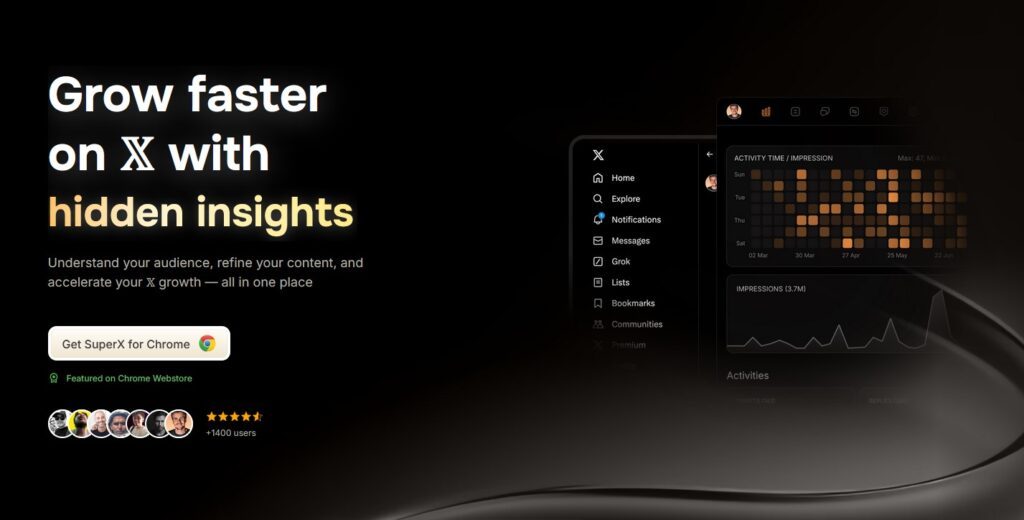Ever felt like you’re lost in the SEO jungle, with no compass to guide you? Fret not, dear reader! Today, we’re going to explore the wild world of SEO authority scores, focusing on the big four: Domain Authority (DA), Domain Rating (DR), Trust Flow (TF), and Citation Flow (CF).
How Do Authority Scores Impact Websites?
Think of SEO authority scores as your secret weapon to outrank your competitors on Search Engine Results Pages (SERPs). The higher your authority, the more traffic your website receives, and the more people you can reach.
What’s the Deal with Domain Authority?
Domain Authority is a metric created by Moz that predicts how likely your website is to rank in SERPs. It takes into account the total number of links to your website (your backlink profile) and the authority of the linking domains.
If you manage to score backlinks from high-authority websites like The New York Times, Moz will increase your Domain Authority score. Essentially, Moz predicts how likely it is for Google to show Domain A vs. Domain B in its search results, and adjusts your score accordingly.
Does Domain Authority Influence Your Ranking?
While the metric itself doesn’t affect your ranking, the backlinks do. Google uses links to understand content, and each backlink is a vote of confidence in your website. The goal is to get “votes” from established websites.
Your DA score is directly proportional to the relevance and trust factor of your website. The higher the number of backlinks (and their DA) to your website, the higher your DA score. This metric is measured on a scale of 0 to 100, with 100 being the best.
What About Domain Rating?
Similar to Moz’s Domain Authority, Ahrefs has a Domain Rating score. It uses backlinks to establish your reputation, especially in terms of your backlink size and quality. Then, it compares your number of backlinks with other websites’ backlinks to determine your Domain Rating.
Domain Authority vs. Domain Rating: What’s the Difference?
Domain Rating only looks at the strength of your backlink profile, while Domain Authority predicts how well you’ll rank on the SERPs. Both DA and DR use backlinks as the main signal of trust (since links are what Google uses).
The Lowdown on Page Authority
Like your domain gets a score with quality backlinks and their DA score, every page on your website also gets a score in Page Authority (PA). PA is another metric created by Moz that comes in handy when streamlining your SEO strategies.
Unlike DA, Page Authority doesn’t look at your entire website’s trustworthiness. Instead, it evaluates every single page’s ability to rank. A good page with relevant and trustworthy backlinks, quality content, and some age under its belt ranks well on page authority, signaling that you’re building trust with searchers.
Do Page Authority Scores Affect Ranking?
Moz’s metric doesn’t affect your ranking directly, but the backlinks do. Link building is one of the staples of SEO. The more links your page gets from relevant referring domains, the higher it will rank.
The Importance of Majestic’s Trust Flow and Citation Flow
While DA and PA help analyze and increase your website’s ranking on SERPs, it’s Trust Flow (TF) and Citation Flow (CF) that determine the quality of your links.
Trust Flow: What Is It?
Trust Flow (TF) measures your page’s trustworthiness. It looks at the quality of your links and the quality of websites linking to yours. As Majestic themselves say, “Trustworthy sites tend to link to trustworthy neighbors.”
Citation Flow: A Closer Look
Citation Flow (CF) evaluates the volume of your links (or the ‘link juice’) and how it impacts your website’s score and relevance.
Majestic SEO created these two metrics, and while they may not define your rankings, they show you how your links are performing. This eventually allows you to increase rankings and your topical authority.
Other Majestic Authority Metrics
In addition to Trust and Citation Flow, Majestic also offers other metrics, such as Topical Trust Flow, Visibility Flow, and Search Flow. Topical trust, in particular, looks at highly-specialized websites.
Once Majestic’s algorithm defines a pool of websites as the central authorities on a topic, it’ll give more weight to other websites in the niche that receive backlinks from them.
Do Authority Scores Affect Your Actual Authority?
Google doesn’t recognize DA, PA, TF, and CF as official metrics. However, these metrics are an excellent proxy to Google’s actual algorithms. Think of them as roadmaps to improving your SEO.
Boosting Your Domain Authority (and Other Authority Scores)
Fortunately, the four scores aren’t so wildly different that you have to spread yourself thin to cover all bases. Most of them focus on links and on-page experience.
Improve Website Responsiveness
Before we dive into backlinks, let’s talk about prerequisite optimization. Your website has to be instantly responsive, adapting to different devices without glitches to be considered for ranking.
Reduce Page Load Time
Your page needs to load in 0.5-2 seconds. Otherwise, searchers won’t wait for it to load, increasing your bounce rate, which is not suitable for your SEO. Make sure you optimize your site regularly to ensure it’s responsive and fast.
Build Your Backlink Profile
Regularly work on getting more organic (white-hat) backlinks from high-authority pages. Most SEOs do this through outreach and by creating relevant content.
Some of the best content types that get links from other sites include compilations of statistics, advice from experts, and in-depth resources. Connect with other people in your niche to get relevant guest-posting opportunities on websites with DA higher than yours, but don’t participate in link-building schemes. Google could penalize your site for it.
Keep an Eye on Your Competition’s DA
Don’t try to compete with big sites when you first start improving your SEO. Instead, begin by competing with those with similar Domain Authority (up to 30), and analyze their backlink profiles to see where they’re getting links.
Adjust Your Keyword Strategy
If your Domain Authority is 9, you can’t rank fast for a keyword with competitors whose DA scores are 70 and up. Instead, focus on keywords where low-DA websites rank in prominent positions. This is a good sign that the SERP doesn’t have enough tailored content. If you can create better content than your big competitors, you can rank in these SERPs.
In conclusion, authority scores are a valuable roadmap to guide your SEO efforts. Focus on creating good content that meets the searcher’s intent and earning votes of confidence from other authoritative sites, and you’ll be well on your way to the top.




